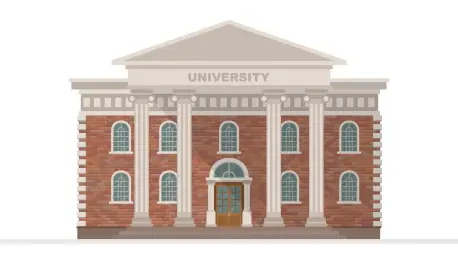The autonomy of prominent educational institutions is often seen as an emblem of intellectual freedom and independent governance. However, when faced with aggressive federal pressures aiming to reshape these entities’ policies, their independence becomes a battleground for national debate. The Trump administration’s assertive actions against Harvard University have sparked intense discussions about balancing governmental oversight with institutional autonomy. This roundup gathers a collection of expert insights and opinions to explore the dynamics at play and the potential ramifications for academia and private educational institutions.
Setting the Stage for Institutional Independence
Harvard University has historically prided itself on self-governance and independence, creating an educational model that influences global academia. Experts emphasize that this autonomy is not merely procedural but involves safeguarding values central to academic freedom. During the Trump administration, federal challenges emerged with significant consequences for institutions like Harvard. Analysts suggest that this pressure is emblematic of broader federal attempts to enforce compliance across various sectors, affecting the fabric of educational independence profoundly. The standoff between federal directives and Harvard’s established policies is marked by disparate approaches to managing issues around race, antisemitism, and diversity.
Exploring the Federal Standoff
The Financial Leverage Challenge
Financial control is often a pivotal method for the government to exert influence over educational institutions. This was prominently seen when the administration halted substantial funding, claiming a need for Harvard’s compliance with federal demands. Industry leaders recognize the financial leverage as a strategic maneuver to assert control over Harvard’s operations, particularly within research funding domains. The fiscal impacts are reinforced by broader discussions on whether such measures align ethically with standard practices in academia. Experts caution about possible ripple effects where other institutions might be coerced into compliance, potentially undermining academic meritocracy.
Scrutiny over Foreign Relations and Student Dynamics
Heightened scrutiny of Harvard’s foreign relations and student interactions stemmed from demands to disclose affiliations and student histories relating to unlawful behaviors or extremist views. Immigration policy shifts have compounded these challenges, with implications for international student enrollments. Commentators highlight these moves as a fundamental shift that could deter global academic relations, posing risks to international cooperation while potentially fostering new opportunities for dialogue. The administration’s pressure emphasizes a contentious intersection between national security and educational autonomy, sparking diverse perspectives on how institutions should navigate these challenges.
Race-Based Admissions and Diversity Discourse
Investigative efforts regarding race-based diversity have sparked critical reviews across educational policy landscapes. Experts delve into the implications of the Title VI investigation, asserting that such measures could reshape admissions policies at Harvard and beyond. Peer institutions present varied case studies highlighting the divergence between maintaining meritocratic standards and fostering inclusive practices. Observers debate evolving paradigms in academic meritocracy, revealing tensions between legal mandates and institutional preferences toward diversity.
Tax-Exemption and Institutional Ramifications
The revocation of tax-exempt status for institutions like Harvard represents a significant challenge, with financial and legal experts warning of profound ramifications should such proposals advance. This situation showcases strategic positioning dilemmas for universities facing similar political pressures. Discussions among legal scholars suggest the legality of altering tax statuses as controversial and impactful, arguably setting precedents for institutional governance and financial planning extensions. Other universities may glean lessons from these developments, considering strategic adaptation amidst analogous governmental challenges.
Charting the Path Forward
Harvard’s confrontation with federal directives offers numerous insights for institutional strategies to protect autonomy. Analysts recommend adaptive industry strategies and policy development initiatives inspired by Harvard’s ventures. Educational experts suggest action plans to navigate comparable governmental pressures, advocating resilience and legal redress where necessary. Successful navigation involves preserving core educational values while accommodating national requirements, providing crucial recommendations for institutions worldwide.
Envisioning Future Directions for University Autonomy
The ongoing dialogue surrounding institutional governance and federal influence resonates within broader academic realms, emphasizing the delicate balance between autonomy and compliance. Speculation surrounds long-term impacts on Harvard and similar universities, fostering debates about the sustainability of independence amid evolving national policy landscapes. The conversation encourages reflection on the role of educational institutions in upholding academic freedom while effectively engaging with governmental directives, paving the way for deeper understanding and strategic foresight in academia.









